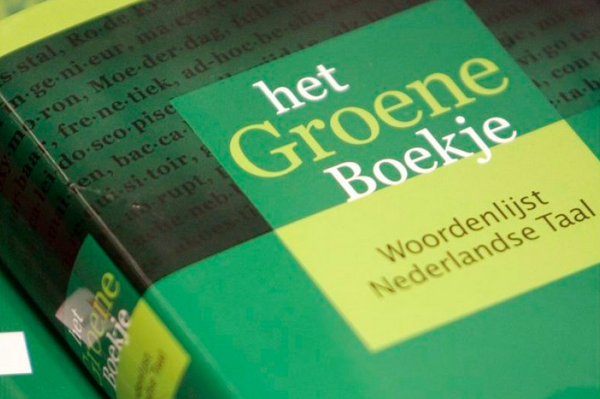Dutch to get thousands of official new words
 Thousands of new words will be included in the new edition of the Groene Boekje – the official list of Dutch words – when it is published on October 13, the Telegraaf says on Tuesday.
Thousands of new words will be included in the new edition of the Groene Boekje – the official list of Dutch words – when it is published on October 13, the Telegraaf says on Tuesday.
The current print edition dates from 2005 and contains 100,000 words. The Groene Boekje (little green book) differs from an ordinary dictionary because it only contains the spelling of words, not definitions.
Now, new words such as appen (to use Whatsapp) and selfie are to be included for the first time, the Telegraaf says.
Despite the inclusion of new words, the 2015 edition of the book will be half the size of previous versions.
‘The new Groene Boekje will include words which people look up more often, spelling rules and the 5,000 most commonly used words,’ said Tanneke Schoonheim, chairman of the spelling commission at the official Dutch language organisation Taalunie.
At the same time, the online version will be expanded to up to 180,000 words, Schoonheim said.
This year no changes are being planned in the official spelling rules. Changes to the rules for spelling compound words like pannenkoek (pancake) caused a commotion when they were introduced in 1995 and 2005 and led the print media to boycott them.
Thank you for donating to DutchNews.nl.
We could not provide the Dutch News service, and keep it free of charge, without the generous support of our readers. Your donations allow us to report on issues you tell us matter, and provide you with a summary of the most important Dutch news each day.
Make a donation